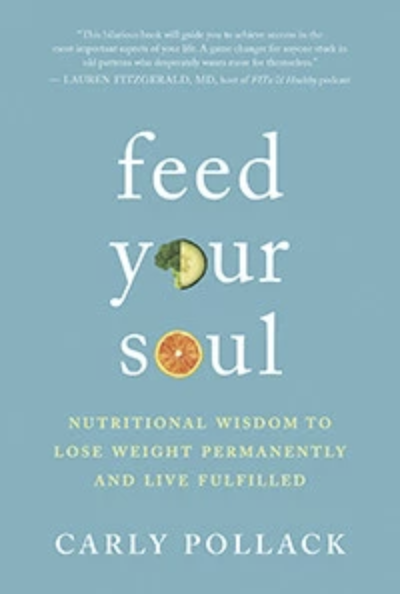There’s a point in the process of dieting, usually close to the beginning, when we experience hopeful euphoria. The diet is working for us, we feel great, and we feel like we’ve finally got it. It’s the point at which we think about our past behaviors and exclaim that we are never going back to that old way of eating again! We are essentially high on the diet, and we want to climb a mountain and scream from the top, “I’m cured!” A few weeks later, we leave our favorite Thai restaurant feeling disgusted (and yet somewhat impressed) with how much pad thai we were able to shove down our gullets. We think back to our mountaintop moment and wonder why and how we have fallen so far from grace. Does restricting our food intake release some special endorphins that make us appear more confident than we really are? If we were truly that happy about all the positive eating changes, then why did we go back to our old patterns?
Because I have visited the mountaintop a time or two (or ten), I have the answer to why we fall so hard from grace and directly into a bag of chips. It is also the key to understanding why diets don’t work. Consider this formula:
Thoughts —> Emotions —> Behaviors —> Reward or consequence
Diets don’t work because they focus on behavior modification and nothing more. Eat this, don’t eat that; and if you eat that, you break the rules of the diet, and that makes you lazy, inadequate, weak, unlovable, and [insert insult] here. If we are brave and vulnerable enough to look more deeply at what truly needs to be healed, we will have success eliminating our negative behaviors at their root. It is our minds that drive the eating bus. In fact, our thoughts drive every emotion we feel, and how we feel will dictate how we act. Unless we change the original thought/story, we will re-create the same painful pattern, a nightmarish diet-induced Groundhog Day.
For years I went on and off diets, some sane, some downright insane (hello, prepackaged meals and freeze-dried snacks; I want a refund). I went through long periods of reckless abandonment, also known as eating everything I craved until all my clothes stopped fitting. When anything with an elastic waistband became my preferred pants for every outing, I would prepare for my next big diet adventure. Eventually I stopped going for extended periods of time in eating denial. I evolved to binging and restricting all within a week’s time.
Monday was always redemption day for me. A fresh start and a new opportunity to finally stop abusing myself with food. I would plan my gym workouts, make my grilled chicken and vegetables, and promise myself that this week would be the start of something permanent. The thought of finally feeling good in my body evoked hopefulness and desire, which changed my eating behavior during the week. But by the end of the week, I was tired, stressed, and ready to break free from the almond-counting food prison of the past five days. It was a subtle shift, but my thoughts changed from “I want to feel good in my body” to “It’s the weekend, and I deserve comfort and rewards for all my hard work.” That subtle shift in thought created new emotions, which drove unhealthy weekend behaviors time after time. I was the epitome of the weekday warrior and the weekend partier. No diet could save me. If I wanted to make any real, permanent change, I had to look internally to examine the underlying thoughts that were consuming my brain. Once I started using my formula to get to the real root of the issue, true and permanent change emerged.
Your thoughts are most likely subconscious; they ride underneath the surface, and you may not even notice they are there. If you heighten your awareness and start questioning your behaviors with this formula as your guide, you will start to notice that exact moment when your emotional thinking about food changes.
The practice of paying attention to your thoughts can be hard at first, especially if you have been listening to the voice in your head your entire life (and believing every word it says). The easiest way to heighten your awareness is to simply ask yourself throughout the day, “What am I thinking?” If you are a person who can connect more easily with your feelings than your thoughts, identify your emotions and work backward. If you ask yourself, “What am I feeling?” and the answer is, “Stressed and exhausted,” then you can take it a step further and ask, “What story am I telling myself right now that is creating this stress?” This is you working your way through the meat of my formula. For the first time, your focus is on what really needs healing and not on your plate. By the time you question your eating behaviors, you are too far down the rabbit hole to make any permanent change. (Just a heads-up: Once you start paying attention to your thoughts, you are going to realize that your mind is absolutely insane. You will need to learn how to distinguish between what’s real and what’s pure crazy, but I’ll help you navigate those shark-infested waters.)
To create the life and body you want, you must do so from a place of peace, gratitude, and happiness. You can’t fake it. If you’re going to achieve deep and fulfilling success, love, and abundance, you have to separate your mind (thoughts) from your heart and soul (your higher self). Only then will you create peaceful behaviors around food.

Excerpted with permission from Feed Your Soul by Carly Pollack.
Follow us here and subscribe here for all the latest news on how you can keep Thriving.
Stay up to date or catch-up on all our podcasts with Arianna Huffington here.


